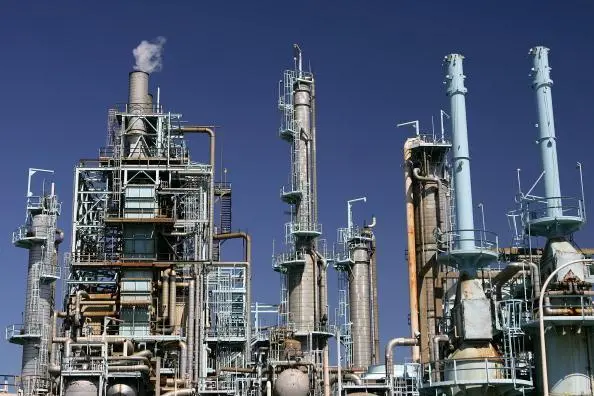PHOTO
- U.S. to eliminate in May all Iran sanctions wavers
- Asian shares remain near nine-month highs
- Abu Dhabi’s index outperforms the region
- Dollar, gold prices edge higher
Oil prices
The United States said on Monday it would eliminate all waivers allowing eight economies to buy Iranian oil without facing U.S. sanctions in May. For the last six months, Iran’s eight biggest buyers, most of them in Asia, were allowed to continue importing limited volumes.
Growing concerns about tight global supplies following the U.S. decision on Iranian exports boosted prices early on Tuesday.
Brent crude futures were at $74.40 per barrel at 0239 GMT, up 0.5 percent from their last close and not far off a 2019 peak of $74.52 reached on Monday.
U.S. West Texas Intermediate (WTI) crude futures hit their highest level since October 2018 at $65.95 per barrel before edging back to $65.89 by 0239 GMT, which was still up 0.5 percent from their last settlement.
According to a Reuters report, Barclays Bank said in a note following the announcement that the decision took many market participants by surprise and that the move would “lead to a significant tightening of oil markets”.
The British bank added that Washington’s target to cut Iran’s oil exports to zero posed a “material upside risk to our current $70 per barrel average price forecast for Brent this year, compared with the year-to-date average of $65 per barrel”.
Global markets
Asian shares were trading near nine-month peaks hit last week early on Tuesday. A rise in oil prices boosted investor sentiment, but concerns that China may slow the pace of policy easing kept investors cautious.
MSCI’s broadest index of Asia-Pacific shares outside Japan was almost flat, while Japan’s Nikkei average eased 0.2 percent.
Overnight on Wall Street, the Dow Jones Industrial Average fell 48.49 points, or 0.18 percent, to 26,511.05, the S&P 500 gained 2.94 points, or 0.10 percent, to 2,907.97 and the Nasdaq Composite added 17.21 points, or 0.22 percent, to 8,015.27.
Investors in the U.S. remained cautious, awaiting data such as first-quarter GDP and quarterly corporate earnings.
“It’s important at this point to sit back and reflect on what the prospects are that will take us forward. It’s appropriate to see what we’re seeing today,” Ryan Larson, head of U.S. equity trading at RBC Global Asset Management in Chicago, told Reuters.
Middle East markets
Abu Dhabi’s index rose 0.8 percent led by a 1.8 percent increase in First Abu Dhabi Bank and a 1.1 percent gain by Abu Dhabi Commercial Bank.
Dubai's main index traded flat, with its largest listed developer Emaar Properties, gaining 1 percent. Its shareholders approved the distribution of a 1.07 billion UAE dirham ($290 million) dividend at its annual general meeting on Monday night – the equivalent of 15 percent of its share capital, of 15 fils per share.
Saudi Arabia's main index dropped 0.5 percent as most of its petrochemical stocks slid, with sector leader Saudi Basic Industries shedding 0.8 percent.
Qatar's blue-chip index added 0.4 percent as Qatar National Bank, the Gulf's largest lender, rose 2.2 percent, while Gulf International Services closed up 1.9 percent.
Egypt’s blue-chip index, EGX30, edged 0.3 percent lower, Kuwait’s premier market index dropped 1.3 percent while Bahrain’s index edged 0.3 percent lower and Oman’s index dropped 0.2 percent.
Currencies
The dollar firmed on Tuesday.
The dollar index, which measures the greenback against a basket of six major currencies, was a shade higher at 97.336.
Precious metals
Gold prices edged higher on Tuesday, but gains were capped by a strong dollar.
Spot gold gained 0.1 percent to $1,275.78 per ounce as of 0115 GMT.
U.S. gold futures were unchanged at $1,277.70 an ounce.
(Reporting by Gerard Aoun; Editing by Michael Fahy)
Our Standards: The Thomson Reuters Trust Principles
Disclaimer: This article is provided for informational purposes only. The content does not provide tax, legal or investment advice or opinion regarding the suitability, value or profitability of any particular security, portfolio or investment strategy. Read our full disclaimer policy here.
© ZAWYA 2019





















